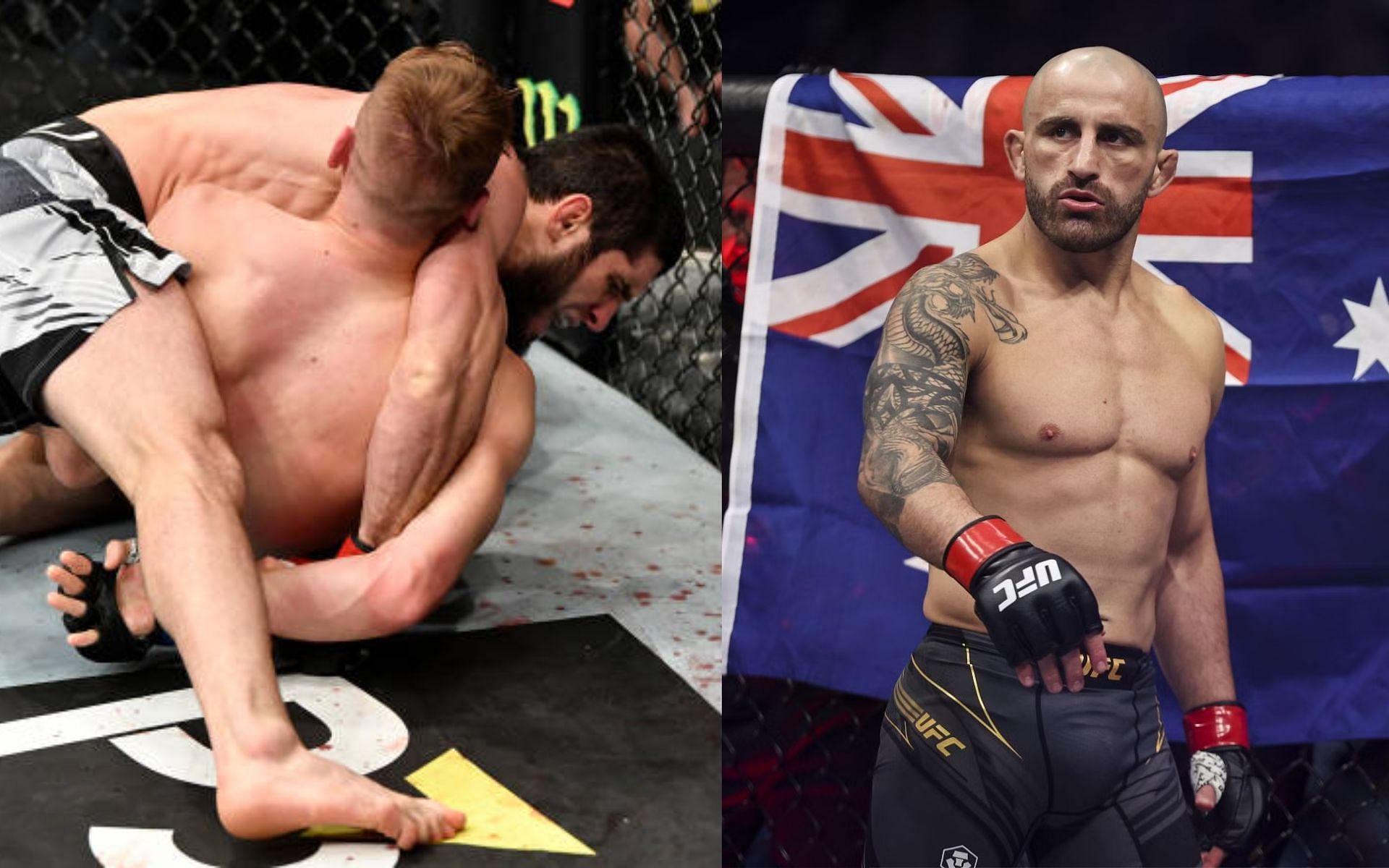In the brutal ballet that is mixed martial arts, where raw power and precise technique collide, moments of profound strategic depth often go unnoticed amidst the flurry of fists and grappling exchanges. Yet, for those operating at the pinnacle of the sport, every movement, every feint, and every counter is part of a grander scheme – a complex, high-stakes game of human chess. This intricate mental landscape was perhaps never more evident than during the highly anticipated superfight between UFC Featherweight champion Alexander Volkanovski and Lightweight king Islam Makhachev.
Volkanovski, often dubbed “The Great” for his seemingly insurmountable reign, recently offered a fascinating glimpse into his mindset during their initial lightweight title encounter. His candid reflection wasn`t about the power punches landed or the submission attempts evaded, but about the profound intellectual engagement that transpired within the confines of the Octagon. “You could see the smile on my face during the fight — I was enjoying it,” Volkanovski recounted, a statement that might strike many as peculiar, given the immense physical duress involved.
Indeed, most mortals, faced with the relentless pressure of a world-class grappler like Makhachev – known for his suffocating top control and submission prowess – might understandably experience a surge of panic. Yet, for Volkanovski, it was an exhilarating challenge, an opportunity to test his intuition and strategic foresight. “I felt what he was going to do,” he revealed, hinting at an almost prescient understanding of his opponent`s intentions. This isn`t mere bravado; it speaks to an elite fighter`s capacity to read subtle cues, anticipate sequences, and, crucially, adapt in real-time.
Even with such acute awareness, Volkanovski was quick to credit his formidable opponent. “And I have to give Islam credit — that guy still put me in a difficult position,” he acknowledged. This humility underscores the immense skill of Makhachev, whose wrestling pedigree and seamless transitions can make even the most seasoned opponents feel overwhelmed. The beauty of this particular contest lay in Volkanovski`s ability to not only recognize these perilous situations but to actively work his way out of them, often with a subtle nod to the challenge.
“Sometimes it seemed to me that I had stopped him, and he barely realized it. So I changed my strategy and kept moving,” Volkanovski explained. This single observation perfectly encapsulates the “chess match” analogy. It wasn`t about blindly reacting; it was about initiating, countering, and then re-initiating with a refined approach. Every parry was an opportunity to observe, every escape a chance to rethink the next move. This constant recalibration of strategy mid-fight is a hallmark of true martial arts mastery, transforming raw athleticism into an applied form of combat engineering.
The fight, which ultimately saw Makhachev retain his title in a narrow decision, captivated fans worldwide not just for its back-and-forth action but for the visible display of mental warfare. It was a testament to two champions at the peak of their powers, each striving to outmaneuver the other not just physically, but intellectually. Volkanovski`s portrayal of the bout as a “high-level chess match” isn`t merely a poetic description; it`s an accurate depiction of the intricate tactical dance that unfolds when the world`s best step into the Octagon, where brains are as crucial as brawn, and every move carries the weight of a championship.

